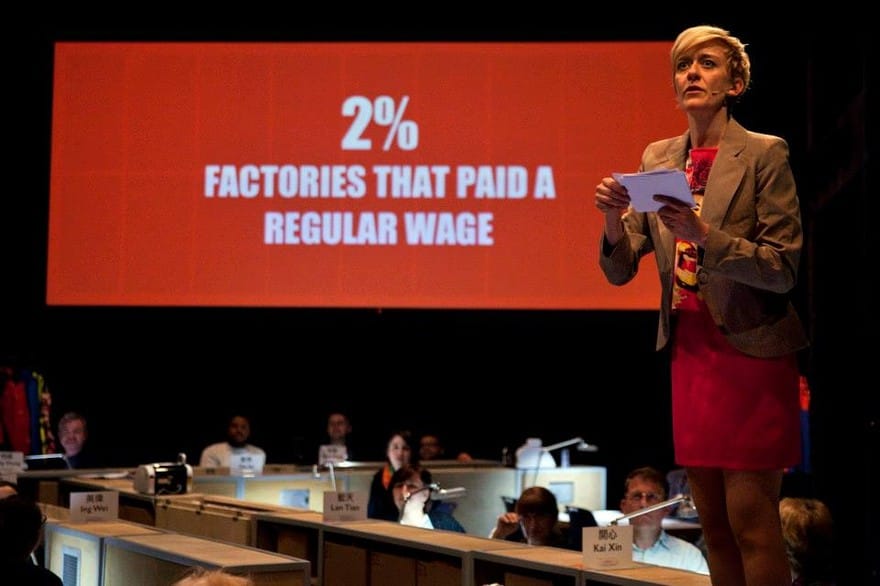An interactive theatre show brings out the capitalist monsters in most of us

Very few people get out of bed and plan to run a horrible sweatshop, but here they are, a collection of young, presumably liberal adults, doing just that.
They are participants in Zoe Svendsen’s interactive play, World Factory, at London’s Young Vic Theatre. Audience members form teams. They sit in clusters, figuring out how to deal with problems at their Chinese clothing factory. These problems touch on a variety of issues—worker conditions, dealings with clients and suppliers—but, insofar as we’re talking about capitalism here, everything comes down to the bottom line.

“Because the choices are binary they are rarely palatable,” notes The Guardian’s Paul Mason. World Factory’s game design skews towards negative outcomes, at least, if you’re a factory worker that is. Svendsen told Mason: “Most people who were given the choice to raise wages – having cut them – did not. There is a route in the decision-tree that will only get played if people pursue a particularly ethical response, but very few people end up there.” There are exceptions, sure, but it’s hard not to feel that they are window dressing on a corrupt edifice, like your occasional cup of fair-trade coffee.
Disregard for worker welfare is not solely the product of clever game design.
Yet disregard for worker welfare is not solely the product of clever game design. Participants bring their prior lived experiences to games, and those experiences influence how they play. The charms of 21st century neoliberalism have brought us to this point (disclosure: the author is wearing a suspiciously cheap t-shirt while writing this paragraph). World Factory brings the ugly choices most people are complicit in to the surface.
According to The Guardian’s report, Svendsen has been tracking the decisions made by participants. “The aggregated flowchart reveals that every audience, on every night, veers towards money and away from ethics,” writes Mason. There may be an element of performance to World Factory, but, like the Stanford Prison Experiment, there’s still sufficient cause for concern in these results.



